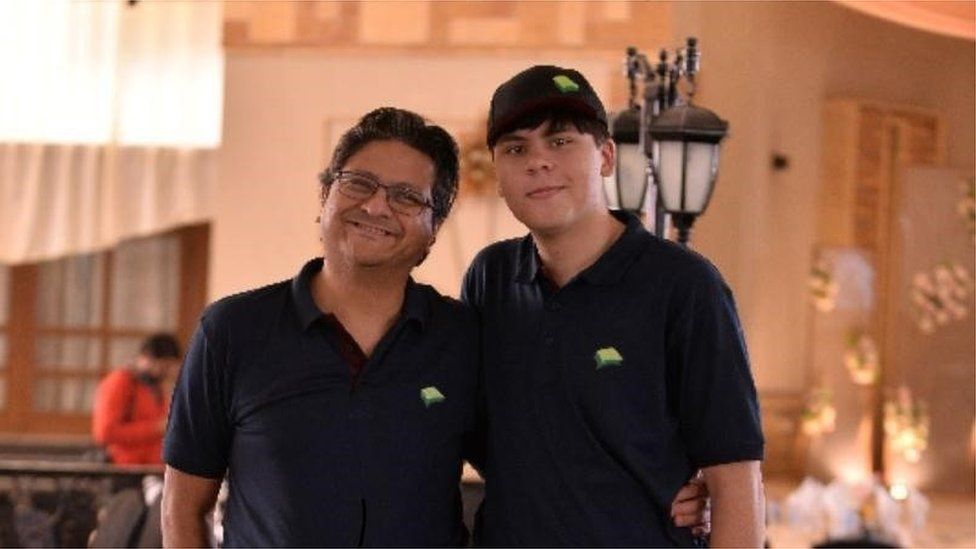
This article is more than
2 year old
The craft was destroyed during a dive to the shipwreck in June.
All five passengers on board were killed.
The search for the sub sparked an international hunt and gripped public attention until the first debris was found several days later.
Coast Guard officials said on Tuesday that the additional parts of the craft were recovered from the sea floor last week and taken to a US port. Medical officials will analyse the human remains.
Although the Titan submersible was described as "experimental" by OceanGate - the company that built it - the sub made several dives to the Titanic wreck, which lies 3,800m (12,467ft) below sea level in the North Atlantic Ocean.
The company's chief executive, Stockton Rush, was aboard the doomed vessel, which imploded under the intense pressure of the water.
The other four passengers who died on board were: British-Pakistani businessman Shahzada Dawood, 48; his son Suleman, 19; British businessman Hamish Harding, 58; and Paul-Henry Nargeolet, 77, a former French navy diver.

US court documents uncovered after the implosion indicated that Mr Rush ignored safety warnings about the submersible. OceanGate, which organised dives in locations around the world, suspended all operations after the disaster.
The hull of the Titan was made from carbon fibre, with titanium end plates and a small window at one end. Carbon fibre is cheaper than titanium or steel and is extremely strong, but it is a largely untested and unusual material for deep sea dives with human passengers.
An international investigation into the disaster continues, and the Coast Guard said a public hearing will be held at a future date.